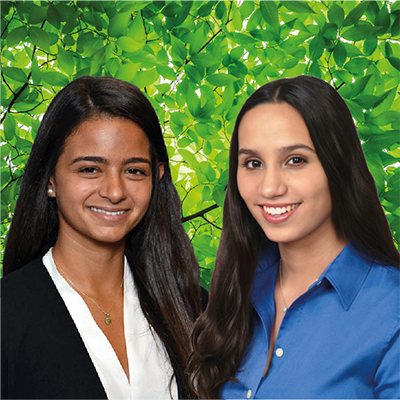November 2020 Champions!

Medical Students – Samantha Rodriguez (left) and Miranda Ricart (right)
Samantha Rodriguez (left) and Miranda Ricart (right) are reversing the usual order of business in medical school. They’re showing the professors things to teach. The medical students at Florida International University in Miami are weaving information about climate and health into courses in the curriculum.
They say their fellow students want to be trained in this, and that faculty members are on board, too.
“A climate freedom fighter for health,’’ says Rodriguez. “That’s kind of what we are hoping to get our people to do.”
The project began in the fall of 2019 after the two friends began attending online meetings of Florida Clinicians for Climate Action (FCCA), an affiliate of the Medical Society Consortium for Climate & Health. It progressed through involvement with other students to create a team, and discussions with FIU faculty, including Dr. Cheryl Holder, a leader in FCCA.
The students decided that, rather than create one course specifically on climate and health, they would show how climate and health affects health care broadly, and not just through the diseases linked to it directly but through its effects on how people live.
“You might know that your patient lives in low-income housing, but you might not know the right questions to ask,” Ricart says. “For example, do you have a screen, does your home flood, do you have mold. Then, the most important thing is figuring out what to do about it.”
They built on an approach FIU already had in place. The school’s community-engaged physician coursework brings students into many aspects of the lives of their patients through such things as home visits, and it continues through each year of medical school.
The medical students first did their homework, seeing what others have done. Based on their research, they drafted slide decks and other material that they showed to faculty members.
“We wanted to make this so we would be met with as little opposition as possible,” Rodriguez said. “We will make your jobs very easy. We even tied them back to all of the course objectives, so we could validate why you would want to be teaching this in the first place.”
It’s working. Faculty members are starting to use the material, and the student team expects to get more coursework included.
“Climate change is incredibly important, and all physicians should have a sense about how it relates to health,” Ricart says.
